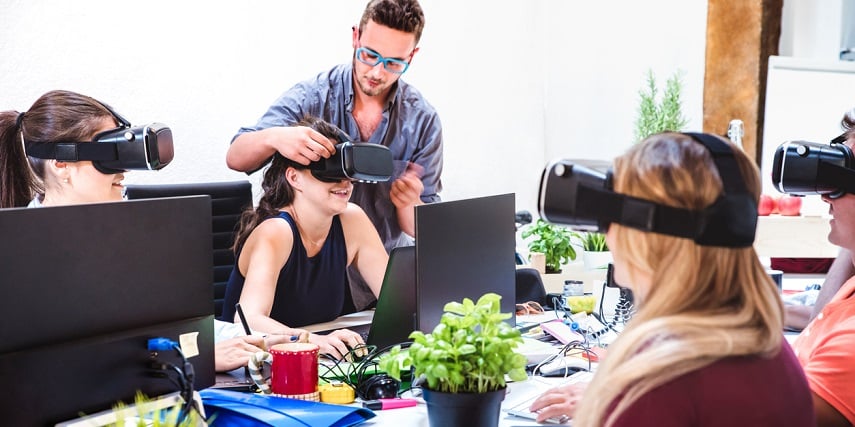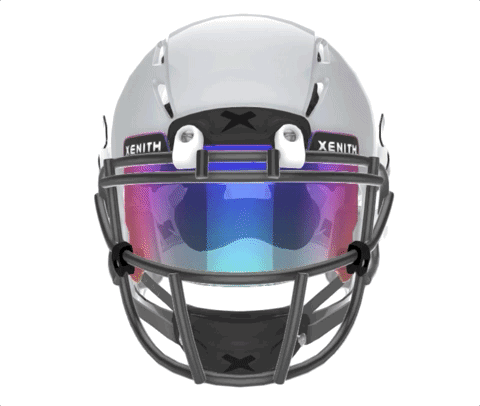Top 5 Ways the Metaverse Could Disrupt Your Business

Of all technology continually developing today, the metaverse is among the innovations that will change the world. It will be particularly critical for businesses as they experience technological disruptions and changes in consumer behaviors.
The metaverse has become one of the biggest changes in recent years, thanks largely to Mark Zuckerberg and his rebrand of Facebook to Meta. The term "metaverse" comes from Neal Stephenson's sci-fi novel Snow Crash, in which it functions as an escape from the book's dystopian environment.
Many video games have jumped into the metaverse early on, with games like Second Life enabling users to create unique avatars for use in a virtual world that allows people to truly live a double life.
With the continued advancement of virtual reality (VR), augmented reality (AR) and mixed reality, people will be able to effectively transport themselves from the real world to a digital world that feels just as real.
Are you wondering what this means for your business? The following are some of the specific ways in which the metaverse may disrupt it:
1. The importance of investment
Many business owners may see the metaverse as a great opportunity to grow and reduce expenses. This is mainly because of the perceivably reduced need for physical space that contributes to a huge chunk of expenses.
However, businesses will need to invest in this world to thrive. Although users can gain free access to the metaverse via VR headsets and other technology, virtual real estate has a price tag.
One example of a company that recognized this need is Prager Metis International, LLC, a fintech company in New York City. The company has many offices on three different continents. But its leaders wasted no time getting into the metaverse by purchasing virtual space on the Decentraland platform.
Prager Metis spent a staggering $35,000 on the digital location, which comprises three stories of virtual real estate.
2. The increased need for both cryptocurrency and blockchain
In recent years, cryptocurrency has exploded as a popular means of completing transactions online. The metaverse will only further encourage the development of the crypto world and blockchain.
This is because the metaverse is a virtual world that runs on virtual currency. To meet the need for digital currency, crypto will fill the void. Businesses will need to prepare to invest in this currency to take full advantage of the metaverse.
3. New opportunities with certain risks
Initially, many business owners saw the metaverse as something that pertained strictly to online gaming and technology companies. The development of the Oculus Quest, Nvidia graphics cards and other tech paved the way for a gaming revolution among tech giants.
But once major brands like Facebook took a deep dive into the metaverse, more business owners began to realize the importance of the metaverse for mass-market consumer goods. The fact is that mass-market platforms can be the key to connecting with consumers via virtual products.
While the possibilities are real, mass-market platforms will need plenty of skills among teams.
For instance, businesses will need experts who have experience with animation and VR in addition to graphic design skills. IT professionals will also need to be able to safeguard against potential threats, including hackers and other malicious parties.
Another big challenge applies to physical retail locations. With the advent of online delivery and shopping, people have begun to move away from shopping in physical stores. This change will only further develop with the introduction of metaverse stores.
This means that if your store sells physical goods, you'll need to make the transition to the metaverse to avoid falling behind virtual competitors.
Also, keep in mind that the metaverse comes with certain environmental challenges to overcome. Unfortunately, the computation required to manage the metaverse will consume large quantities of electricity, which could make it inefficient.
To mitigate this, businesses will need to do what they can to manage their environmental impact and maintain sustainable practices within the metaverse.
4. The challenge of protecting IP
Brands must protect themselves by protecting their intellectual property. The metaverse could make it easier than ever for people and other businesses to copy businesses' IP in a way that's nearly impossible to detect.
One way to avoid copyright issues is to protect digital assets using non-fungible tokens (NFTs). Startups and other more established brands can create limited editions or one-time digital assets of all types.
While NFTs can add a level of protection for assets, they aren't entirely foolproof. In addition to using NFTs, brands will need to trust that platforms within the metaverse take steps to prevent copyright infringement.
5. Better training and development for employees
Technology like VR, AR and mixed reality may appear to be limited to video games and consumer experiences. But they also offer plenty of opportunities to train and develop employees.
For example, employees can use smartphone apps to engage with virtual objects in the real world. Meanwhile, virtual reality headsets can transport employees to virtual training spaces.
With this level of immersion, businesses will want to develop virtual training programs to help their employees develop.
Embrace the vision of the metaverse

These and other potential disruptions show how the metaverse will change businesses and their operations. If you want your business to succeed in this world, you'll need to make the transition to the metaverse and ensure you're adequately prepared.
With so many changes coming, it can become overwhelming. But there are solutions available to help you get ahead and stand out.
If you're looking for a way to embrace the metaverse and incorporate it into your organization, Threekit can help.
Using Threekit's virtual product configuration platform, you can connect with audiences using in-depth 3D virtual models of your products on eCommerce platforms. Additionally, you can harness the power of AR to enable customers to interact with virtual representations of your products before buying.
To learn more about what Threekit can do for your business, get in touch with us today.




